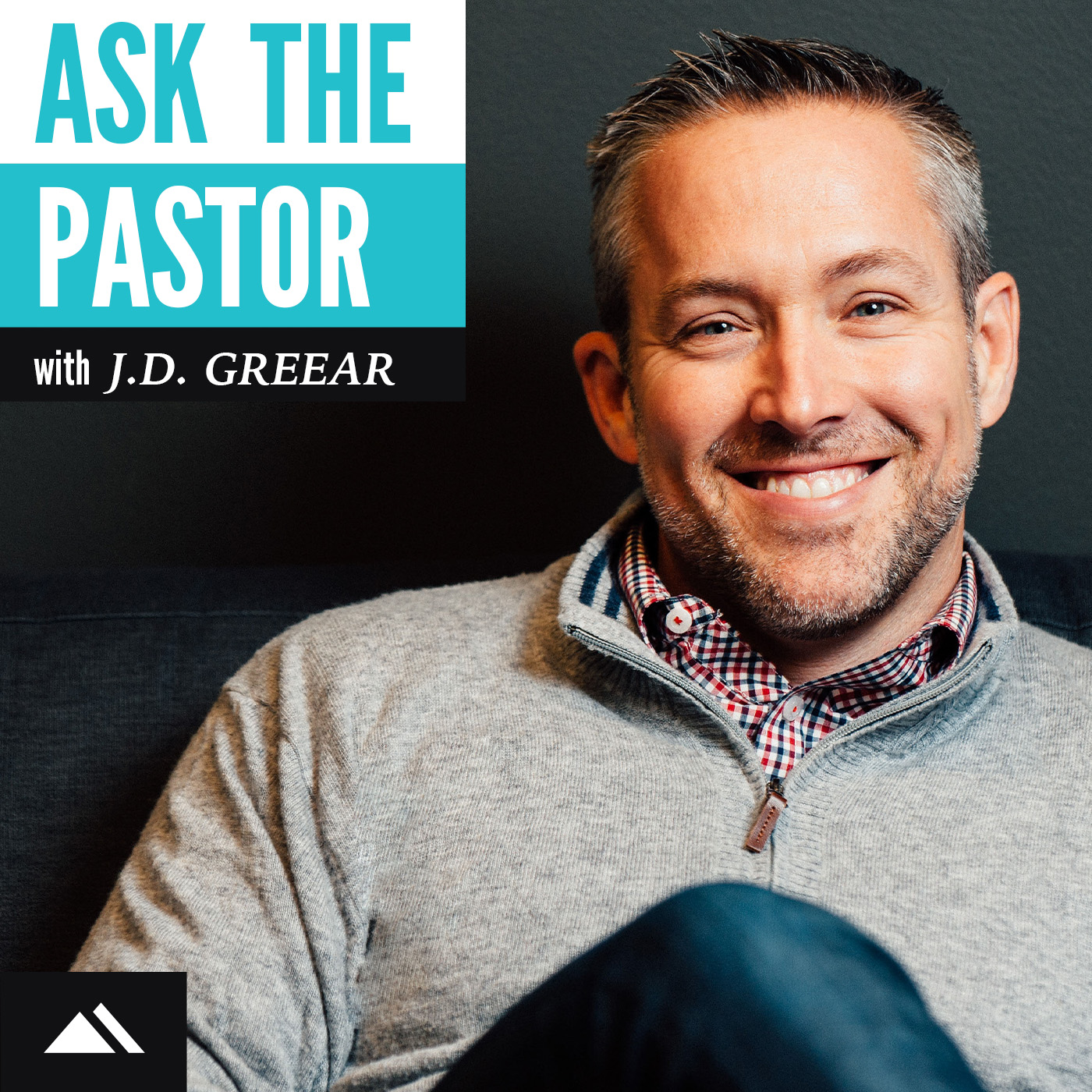

Ask the Pastor with J.D. Greear
J.D. Greear
Ask the Pastor with J.D. Greear is a weekly podcast that answers tough questions and tackles relevant issues in a way that is filled with grace, understanding, and wisdom from God’s Word. Hosted by Matt Love.
Episodes
Mentioned books

Aug 21, 2023 • 16min
What’s Going to Happen in the “End Times?”
This week, Pastor J.D. answers a question submitted from Brandon. He asked, "What’s going to happen in the “end times?"

Aug 14, 2023 • 13min
If God Draws People to Faith, Why Has God Not Drawn My Lost Family Member?
This week, Pastor J.D. answers a question submitted from Linda. She asked, "If God Draws People to Faith, Why Has God Not Drawn My Lost Family Member?"

Aug 7, 2023 • 8min
Is It Ever OK to Lie?
This week, Pastor J.D. answers a question submitted from Ruperto. He asked, "Is it ever OK to lie?"

Jul 31, 2023 • 14min
How Do I Tell Someone of Another Religion They’re Wrong?
This week, Pastor J.D. answers "How Do I Tell Someone of Another Religion They’re Wrong?"

Jul 24, 2023 • 22min
What Stands in the Way of Ethnic Unity?
This week, Pastor J.D. answers a question in his recent sermon: "What stands in the way of ethnic unity?"

Jul 17, 2023 • 14min
What Does It Mean to be “Poor in Spirit?”
This week, Pastor J.D. answers a question that was submitted by Jessie. She asked, "What does it mean to be “poor in spirit?”

Jul 10, 2023 • 14min
How Should a Believer Handle Guilt from Sinning?
This week, Pastor J.D. answers a question that was submitted by Annie. She asked, "How should a believer handle guilt from sinning?"

Jul 3, 2023 • 14min
How Do You Find a Good Church?
This week, Pastor J.D. welcomes back Pastor Tony Merida, author of "Gather," to answer, "How do you find a good church?"

Jun 26, 2023 • 12min
How Does the Church Achieve Diversity?
This week, Pastor J.D. answers a question in his recent sermon: "How does the church achieve diversity?"

Jun 19, 2023 • 12min
Why Is It Important to Go to Church In Person?
This week, Pastor J.D. is joined by Pastor Tony Merida, author of "Gather," to answer, "Why is it important to go to church in person?"


